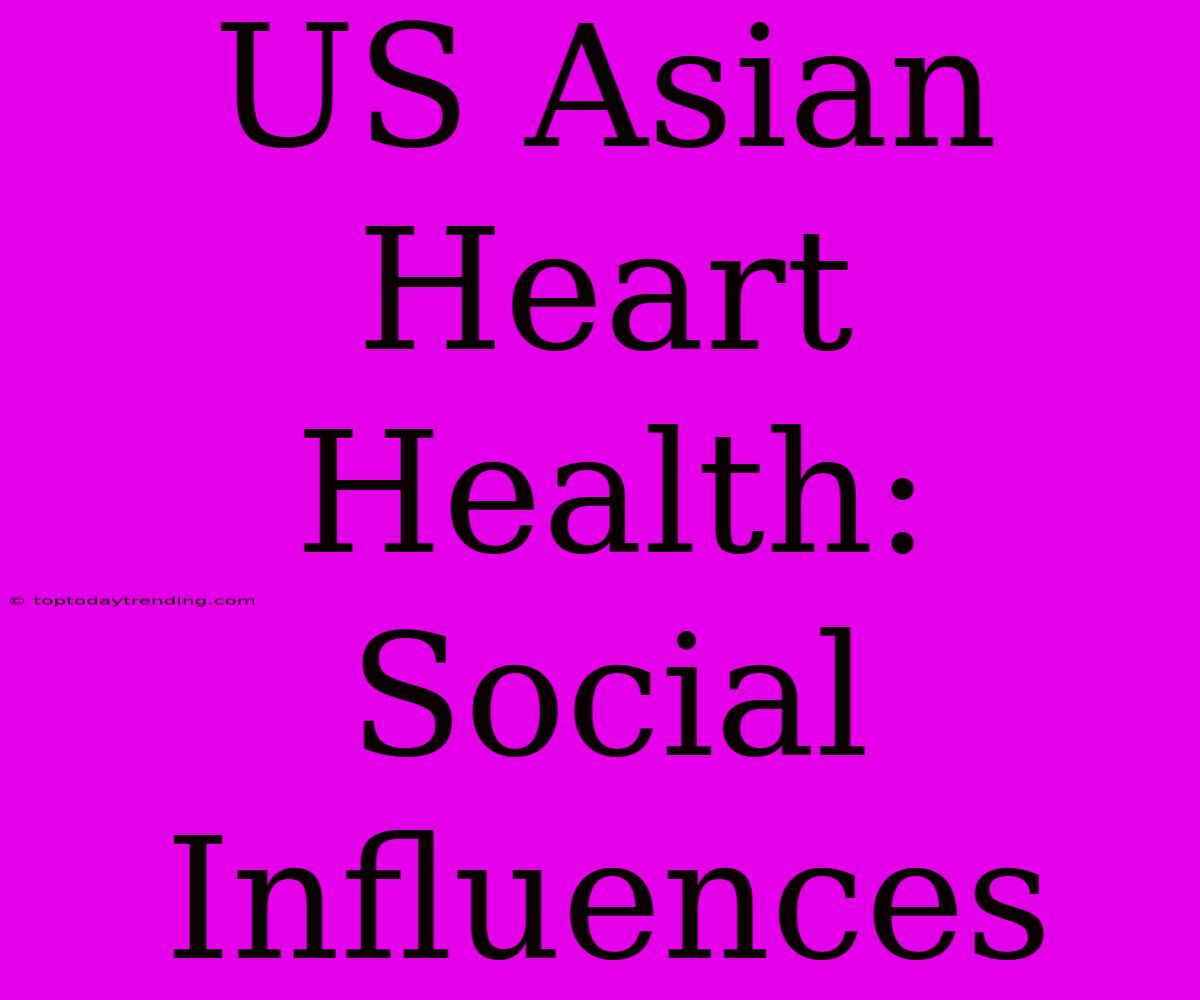US Asian Heart Health: Social Influences
The health of Asian Americans in the United States is a complex and multifaceted topic. While the community enjoys some positive health outcomes, cardiovascular disease remains a major health concern. This article will explore the social influences that impact heart health in US Asian populations, highlighting how cultural factors, socioeconomic disparities, and access to healthcare shape the prevalence and management of heart disease.
Cultural Factors
Dietary Habits:
- Traditional Diets: While many Asian cuisines are known for being heart-healthy, with an emphasis on vegetables, fish, and whole grains, the adoption of Westernized diets with higher amounts of processed foods, saturated fats, and sugar can increase the risk of cardiovascular disease.
- Food Preferences: Cultural food preferences can contribute to dietary disparities. For example, some Asian cultures may favor salty or sugary foods, which can negatively impact heart health.
Family Dynamics:
- Strong Family Ties: The strong emphasis on family within many Asian cultures can both positively and negatively affect heart health. Family support can be a buffer against stress, but pressure to meet family expectations can also lead to unhealthy coping mechanisms.
- Traditional Beliefs: Sometimes, traditional beliefs about health and illness, which may differ from Western medical perspectives, can affect health seeking behavior. This can include reluctance to seek medical attention for symptoms, or reliance on traditional remedies instead of modern medicine.
Socioeconomic Disparities
Income and Education:
- Lower Socioeconomic Status: Asian Americans are disproportionately represented in low-income households, leading to limited access to healthy food choices, quality housing, and healthcare.
- Language Barriers: Language barriers can hinder communication with healthcare providers, making it difficult to access preventative services and receive accurate information about cardiovascular disease.
Access to Healthcare:
- Insurance Coverage: Despite working in high-demand jobs, many Asian Americans are uninsured or underinsured, making access to preventative care and early detection of heart disease difficult.
- Cultural Sensitivity: Lack of culturally competent healthcare providers can create a barrier for patients to feel comfortable disclosing their health concerns and engaging in open dialogue.
Strategies for Improvement
- Community Outreach: Developing culturally appropriate outreach programs can help increase awareness about heart health risks and preventative measures within Asian communities.
- Healthcare Provider Education: Investing in training programs for healthcare providers to improve their cultural competence and understanding of Asian American health needs is crucial.
- Language Services: Ensuring that healthcare facilities offer language interpretation services to break down communication barriers and improve patient engagement.
- Addressing Social Determinants of Health: Working to address socioeconomic disparities by providing access to healthy food, quality housing, and affordable healthcare options.
Conclusion
Understanding the social influences that impact heart health in US Asian communities is crucial to improving outcomes. By acknowledging the unique cultural factors, socioeconomic disparities, and access to healthcare challenges, we can develop effective strategies to promote awareness, education, and preventative care, ultimately leading to a healthier future for Asian Americans.

